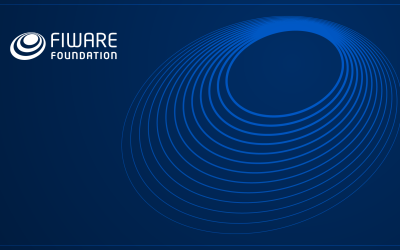BARCELONA, 25th November 2015.- Last week, at the Smart City Expo World Congress, the Open and Agile Smart Cities (OASC) initiative (http://oascities.org) announced the third wave of cities adopting de-facto standards that will give a boost to the use of real-time open data and the creation of a sustainable marketplace in which smart cities can collaborate and share actionable plans, experience and technology to transform cities into engines of growth and well-being of citizens. OASC announced today the addition of 14 more cities since March, making a total of 75 cities in 13 European countries, Brazil and Australia, each committing to eventual, implemented outcomes within a year.
The objective of OASC is to use the collective wisdom of diverse cities to create a global smart city market that allows the development of applications/solutions once which subsequently can be utilized by multiple cities. OASC believes that portability and interoperability enabled by de-facto standard Application Programming Interfaces (APIs) are the technical keys to avoid vendor lock-in. They also facilitate the sharing of best practices and benchmarking that will enable smart cities of all sizes and economic backgrounds to improve the management of their services to citizens. In addition, they lay the foundation for a sustainable market where companies, particularly SMEs as well as startups, can invest in developing applications and solutions.
FIWARE brings the technical backbone that is enabling these cities to collaborate and innovate. In fact, it delivers the first open-licensed standard API adopted in the OASC initiative that facilitates the interconnectivity for the purposes of collecting, publishing, and querying the big data of smart cities in real-time. It also integrates a version of the CKAN platform recommended as open source reference of an open data publication platform in OASC which brings extensions for publication of real-time open data. FIWARE is actively collaborating in the shared objective of defining common open standard data models, on top of which not only countless applications but entire cities are being built.
Jesús Villasante, Head of the Net Innovation Unit of the European Commission, specifically pointed to FIWARE as the technology platform that is enabling the essential portability, interoperability and openness that the 75 OASC cities are looking for.
As we look forward to the addition of new cities like Sarajevo and Dubrovnik, it is important to take a moment to review and reflect on what other cities have already achieved in recent months of starting to implement the OASC initiative.
One of the first cities having grown as a result of their March induction is the greater area of Porto, found on the northern coast of Portugal, with a population of about 1.4 million. Porto is one of the first OASC cities publishing real-time open data based on FIWARE, supported by the local SME Ubiwhere. Ubiwhere has established a network of mobile and fixed sensors across the urban region and has built the infrastructure on which ten apps and services stand. This includes Ubiwhere’s partnership with the Porto Water Supply Company, in which the aggregation of data from more than 20,000 sensors allows for the monitoring and advising of water consumption.
Rui A. Costa, founder of Ubiwhere, chose to support FIWARE because of its openness, scalability, and replicability.
“For a Portuguese SME, it’s hard to sell outside, but, by using the same open standards, we have the chance to do it once in a city like Porto, and then work with other companies, bringing solutions to other cities in other countries, replicating the best practices and technological bases.”
Costa further explained how FIWARE enables the technical side while “Ubiwhere brings the necessary local support. From an industry perspective, FIWARE is important in order for our city custormers to base their work on a standard platform with the proper scale and global dimension in order for them to secure their investment.”
Another successful case is found among six Dutch cities which together signed onto the OASC initiative this past June. Amsterdam in particular stands out as they implemented a complete city-wide Internet of Things data network (http://thethingsnetwork.org), which, when paired with FIWARE, lays down the foundation Internet of Things businesses can build on.
Arjen Hof, founder of the Civity (http://www.civity.nl/) open data consultancy firm that is driving the OASC initiative in the Netherlands said that they looked “to create an ecosystem around the FIWARE Lab, connecting SMEs and entrepreneurs around it. Getting knowledge and cities combined.” It has been less than six months since they entered into their two-year commitment, and they are about to deliver solutions solving parking issues, improving road conditions, supporting data sharing policies, and dealing with air contamination policies.

